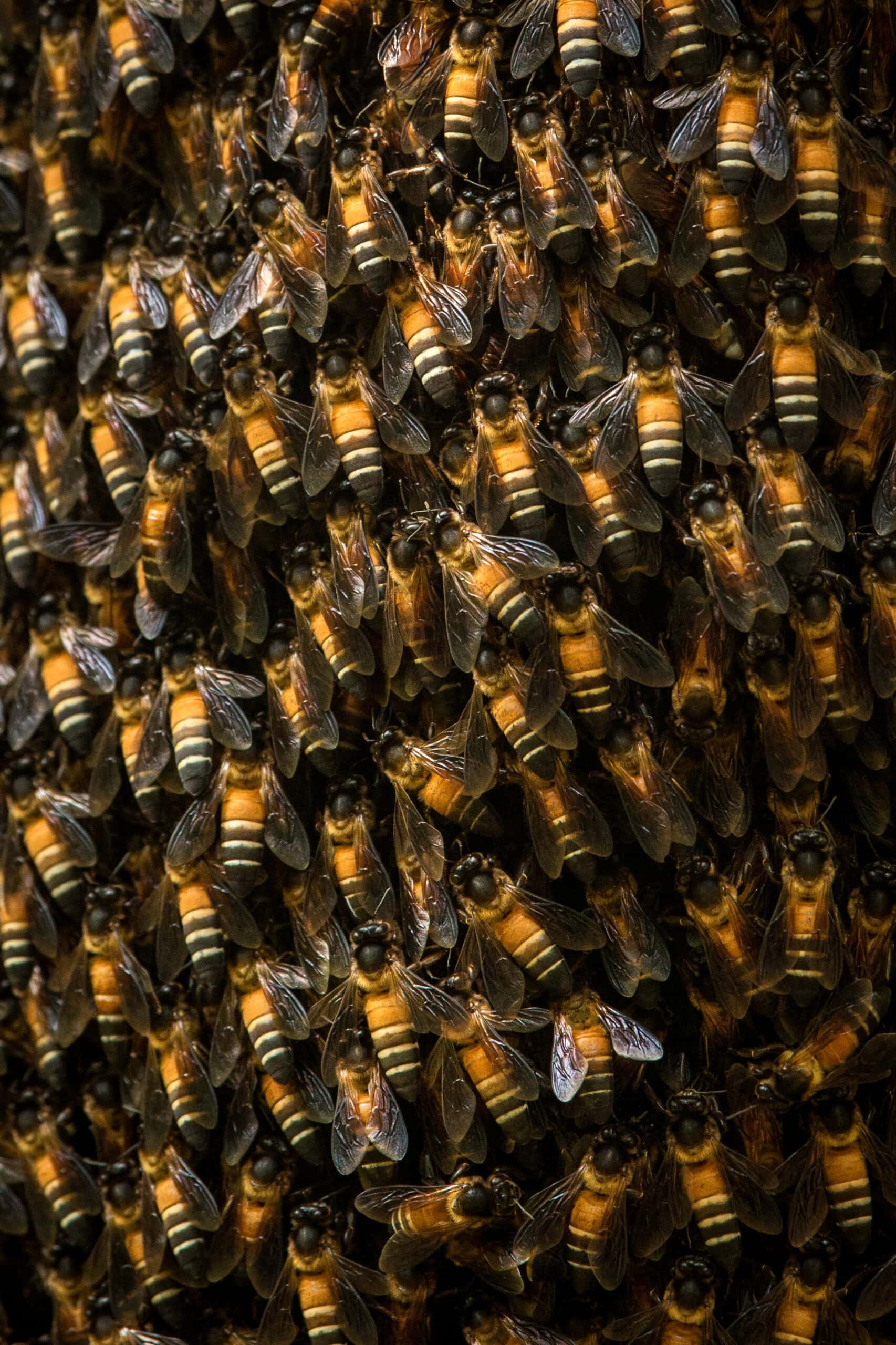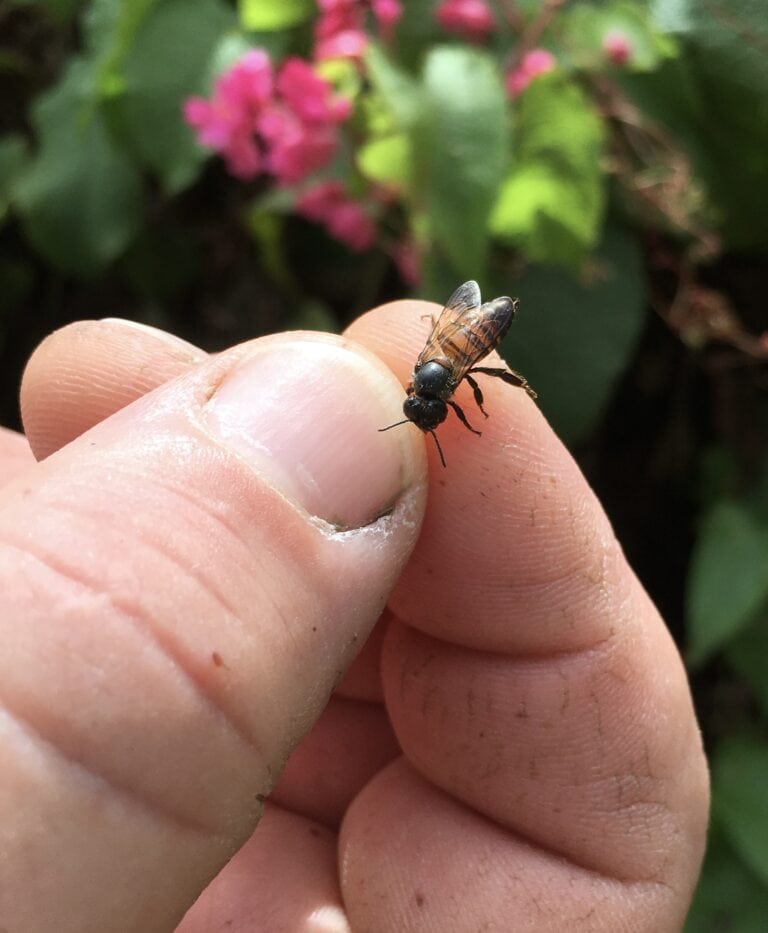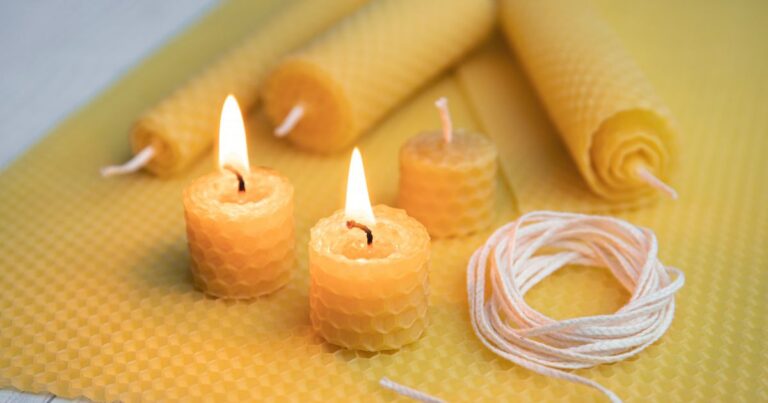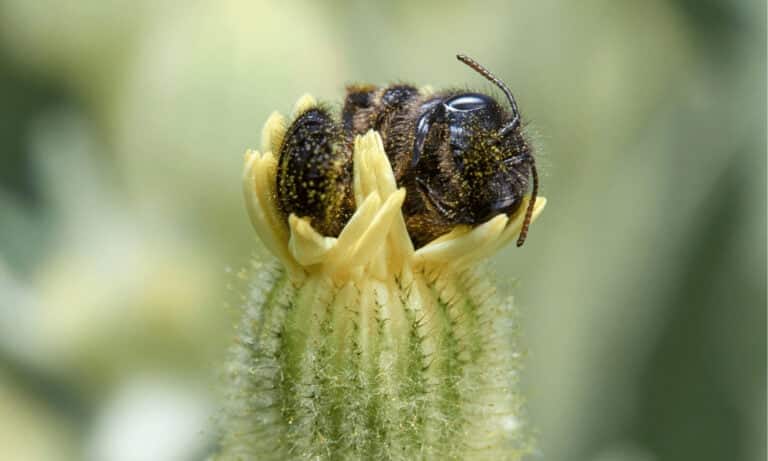‘Flying Cane Toads’ Part 2: Permanent Residency
‘Flying Cane Toads’ Part 2: Permanent Residency.In March 2011, media reports warned of dire consequences in the wake of the federalgovernment’s decision to scrap an…

‘Flying Cane Toads’ Part 2: Permanent Residency.
In March 2011, media reports warned of dire consequences in the wake of the federal
government’s decision to scrap an eradication program for the Asian honey bee (Apis cerana)
in north Queensland. The bees had arrived in Cairns in 2007, and their potential to carry and
spread dangerous varroa mites was set to jeopardise up to $6 billion of annual agricultural
produce.
But although the eradication program was deemed unfeasible and consequently shelved, this
did not mean that the invading bees were ignored, or that we were left unprotected from
further incursions. Early detection is vital for containment, and the Australian Government
monitors cargo ships entering our ports for traces of bees and other imported pests. Plant
Health Australia and Biosecurity Queensland also administer the National Bee Pest
Surveillance Program, in which ‘sentinel’ beehives are located near ports and checked
regularly for the presence of mites. This joint initiative also involves the Queensland
Beekeepers’ Association, and each year bees are collected from hives throughout the state
and tested for mites.
After the initial discovery of Asian honey bees in a yacht in 2007, it was to be another eight
years before a second incursion was detected. In 2015, a swarm of Apis cerana infected with
Varroa jacobsoni was destroyed at the Port of Brisbane; later, another colony was located at
the port. In July 2016, infected bees were detected amongst a colony at the Port of
Townsville, and a month later another infestation was found in the backyard of a house at
Annandale, a nearby suburb. In June 2018, an infested colony was found on a ship at the Port
of Melbourne – luckily, the bees were not active due to the wintry conditions. And in April
2020 mites were discovered in another feral nest of Asian honey bees at the Port of
Townsville. To date, Australia remains free from the devastating impact of varroa mites, and
these isolated incursions remain the only known instances of varroa mites in this country. In
response to the mites detected in Townsville, Biosecurity Queensland increased surveillance
and imposed restrictions on the movement of bees, beehives, bee products and equipment.
Teams of experienced beekeepers from around Australia were recruited to conduct field work
in the Townsville area in late August and early September 2016.
But what of our unwelcome immigrant, Apis cerana? By 2012, the Asian honey bee had
established itself across an area of 500,000 hectares. Although there is a general lack of
research into the impacts of Apis cerana on the Australian environment, and local European
honey bees, Biosecurity Queensland believes that it is ‘likely to compete for pollen and
nectar with native birds, mammals and insects, and for nesting sites in tree crevices’. There is
also a distinct possibility that A. cerana will compete for resources with commercial honey
bees and thus affect agriculture reliant on pollination services.
However, the Australian Government’s Department of Agriculture, Water and the
Environment advise that most Asian honey bee detections to date have been within the city of
Cairns, and immediately south in Gordonvale and Aloomba. The bees have also been located
in Mareeba and Lake Eacham, but the furthest they are known to have strayed is Innisfail,
seventy-two kilometres south of Cairns. The department is confident that there are no
populations of Asian honey bee outside of this area, and that all new detected incursions of A.
cerana into Australia are being eliminated. Moreover, they maintain that the current
population of Asian honey bee in mainland Australia does not carry any of the exotic bee
parasites (including varroa mites) that are present in overseas populations. There is some
comfort in the knowledge that the resident Asian honey bees don’t seem too keen to travel far
from their tropical paradise, and at least they have been given a clean bill of health!



